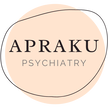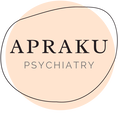|
This blog post was reviewed and approved for publication by Chenhang Zou M.D., a Board-certified psychiatrist at Apraku Psychiatry.
You've been feeling off for a while now. Your mood swings are more intense than usual, you're constantly fatigued, and you can't seem to focus. Social media and self-help articles tell you that self-care is the answer. So, you run a bubble bath, complete with lavender bath salts and soothing music, hoping it will wash away your worries and emotional heaviness.
As you soak, you find your mind wandering to the problems that made you stressed in the first place. The bath ends, but the mental fog and emotional turmoil do not. It's a disheartening experience. You followed the popular advice to indulge in self-care, yet here you are, feeling just as troubled, or even more so for lack of relief. You might be wondering, "Why didn't this work? Isn't self-care supposed to help me feel better?" In this article, we’ll delve into why bubble baths, scented candles, and other quick fixes often miss the mark for people dealing with serious emotional and mental struggles. We’ll explore what true self-care entails and how to pair it with other wellness strategies to achieve a more lasting sense of well-being. The Popularization of ‘Self-Care’The term "self-care" has become a buzzword in recent years, skyrocketing in popularity across your social media feeds, self-help books, and lifestyle blogs. The concept has been commercialized to the point where it's often reduced to purchasable products and "insta-worthy" activities. From scrolling through aesthetically pleasing images of face masks, artisanal coffees, and exotic vacations, all hashtagged as #selfcare, you might get the impression that self-care is something you can simply buy. The message is clear: the more you spend, the better you'll feel. While this mainstream portrayal does emphasize the importance of taking time for yourself, it often promotes a one-size-fits-all approach. This consumerist angle is largely targeted at you, as part of a demographic searching for quick fixes to complex emotional and mental challenges. What’s rarely mentioned is that these widely marketed forms of self-care might not be what you truly need, especially if you're dealing with symptoms of potential mental health disorders. A spa day or an Instagram-perfect yoga session is unlikely to provide the kind of relief you're searching for if you're experiencing persistent anxiety, depression, or other mood disorders. Top Highlights
Temporary Relief or Long-Term Solution?Coping mechanisms like bubble baths or deep-breathing exercises may offer momentary relief, but they won't necessarily help if you're not also addressing underlying causes. At best, these tools may help to manage stress, anxiety, or other emotional difficulties in the moment, giving you a sense of immediate relief. However, it's vital to differentiate between these coping mechanisms and professional treatment, especially if you're grappling with persistent or more severe symptoms. Think of coping mechanisms as band-aids that provide temporary relief but don't address the root issues. It's akin to using a bucket to remove water from a leaking boat; you're coping, but until you fix the leak, you'll keep taking on water. If what you're facing is more significant, like ongoing anxiety or depression, a bubble bath or a yoga session won't fix that leak for you. In contrast, professional treatment aims to get to the root cause of your symptoms. This could involve medication, therapy, meaningful lifestyle changes, or a combination of these elements. The goal isn't merely to offer short-term relief but to equip you with the strategies you need to manage your mental health over the long term. If you find that your usual coping mechanisms aren't bringing lasting relief, or if your symptoms are getting worse, it's likely a sign that you require a more comprehensive approach to your mental health. When ‘Self-Care’ BackfiresFaux self-care measures can be more than just ineffective — they can actually exacerbate your mental health issues. When you bypass professional help, thinking a scented candle or a day off will solve problems, you risk turning manageable symptoms into chronic conditions. The delay in seeking appropriate medical help can lead to the worsening of symptoms and, in severe cases, can put you at risk for crises. This isn't just a theoretical concern; the increasing severity of untreated symptoms can manifest as deteriorating relationships, poor work performance, or even physical health issues. The absence of a clinical diagnosis and plan can also create a dangerous environment for self-misdiagnosis, and it can lead to harmful interactions with non-prescribed remedies, adding complexity and risk to an already precarious situation. Misguided self-care measures can also perpetuate a cycle of self-blame, where you internalize the ineffectiveness of these efforts as personal failures. This not only deepens the emotional struggle but can also deter you from eventually seeking the help you need. It's important to remember that true self-care involves recognizing when professional help is needed and taking the steps to access appropriate support. Practicing Self-Care with SubstanceIf you're contending with persistent or escalating mental health issues, don't rely solely on popular wellness trends. Professional guidance is crucial; it's not an optional supplement but an essential component of true well-being. Pairing professional help with authentic self-care creates a holistic treatment plan. A psychiatric consultation can tailor this further to your unique needs, potentially involving medication or psychotherapy, but always leaving room for personal forms of effective self-care. Authentic self-care activities can range from exercise and adequate sleep to mindfulness practices and social support. These measures, rooted in evidence-based recommendations, work in tandem with clinical treatments. They serve as crucial building blocks, helping you build resilience and better manage stress. This form of self-care is a long-term commitment. It goes beyond mere instant gratification to facilitate genuine self-improvement. Whether it's setting emotional boundaries or making time for hobbies that enrich your life, the focus is on nourishing your overall well-being. So when you engage in self-care, make it count. Select activities and routines that not only provide momentary relief but also contribute to your holistic treatment plan, all under the guidance of mental health professionals. Conclusion: The Real Path to Mental WellnessThe allure of self-care isn't just about immediate relief; it also hints at a deeper promise of mastery over your mental well-being. However, the convenience of these solutions can often act as a smokescreen, obscuring the need for more specialized and enduring interventions. The bubble bath may offer a momentary pause, but it won't provide a comprehensive plan for dealing with generalized anxiety disorder, depression, or other lingering mental health conditions. Understanding the difference between self-soothing practices and evidence-based treatments can make the difference between lingering in discomfort and actually recovering. If you find that your self-care routine is a continuous loop of temporary relief with no substantial improvement, it may be a sign to consult with a qualified mental health professional. The diagnosis and treatment of mental health disorders often require a multifaceted approach that integrates medication, psychotherapy, and lifestyle changes — something a scented candle simply can't offer. By distinguishing between authentic self-care and its commercialized imitations, you can make more informed choices on your mental health journey. Self-care is not a replacement for professional health care; rather, when done correctly, it can work alongside a treatment plan to provide a more holistic healing experience. This blog post is brought to you by Apraku Psychiatry. Apraku Psychiatry is a private practice offering video appointments with Board-certified psychiatrists licensed in multiple states. More blog articles can be found here. To schedule an appointment with one of our psychiatrists, patients can complete the online booking form. Comments are closed.
|
Copyright © Apraku Psychiatry 2024


